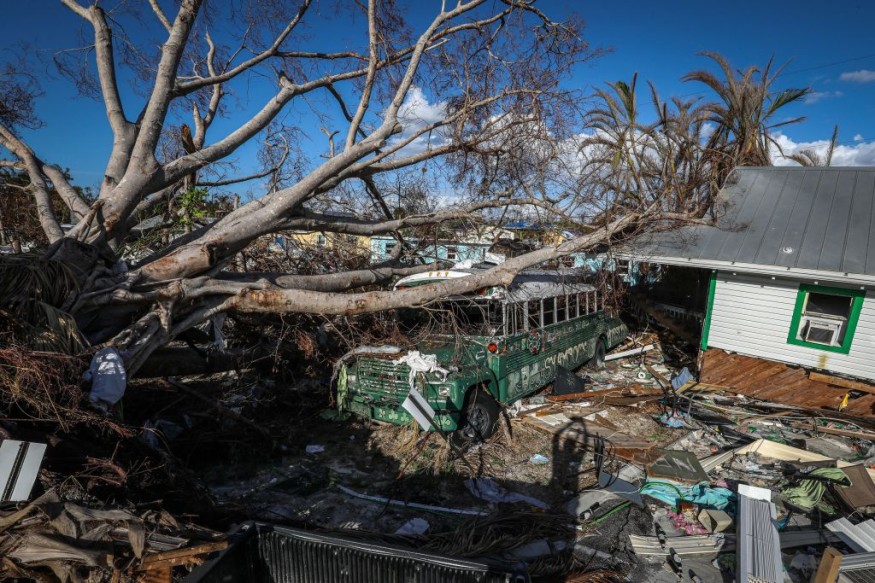
A new study found out that vibrio bacteria was unleashed by a strong hurricane that later on caused illness and mortality among humanity.
Scientists from the University of Maryland, the University of Florida and microbiome company EzBiome have detected several pathogenic vibrio species in water and oyster samples from Florida's Lee County.
This coastal region was severely devastated by Hurricane Ian in September 2022.
Findings Of The Study
During October 2022, water and oyster samples were collected from three stations from the said county that was significantly impacted by Ian.
Experts said that metagenomic analysis of water samples provided insight with respect to human health-related factors, notably the detection of approximately 12 pathogenic Vibrio spp., virulence and antibiotic resistance genes, and mobile genetic elements, including the SXT/R391 family of integrative conjugative elements.
In addition to anomalous rainfall and storm surge, changes in sea surface temperature and chlorophyll concentration during and after the onslaught of Ian favored the growth of Vibrio spp.
Researchers pointed out that genetic analysis coupled with environmental data and remote sensing have provided useful public health information and, hence, constitute a valuable tool to proactively detect and characterize environmental pathogens, notably vibrios.
These data can actually help in the development of early warning systems by yielding a larger source of information for public health during climate change.
"Evidence suggests warming temperatures are associated with the spread of potentially pathogenic Vibrio spp. and the emergence of human disease globally. Following Hurricane Ian, the State of Florida reported a sharp increase in the number of reported Vibrio spp. infections and deaths," the study indicated.
Due to this, the monitoring of pathogens, including vibrios, and environmental parameters influencing their occurrence is very critical to public health.
Experts said several species of the genus Vibrio could cause severe infection in humans, primarily related to consumption of contaminated seafood or exposure to water containing the pathogens.
They explained that V. cholerae is well documented as the etiological agent of cholera, the seventh cholera pandemic of which is in progress and continues to plague the modern world, notably when climate or weather processes, microbiological parameters, and sociological determinants intersect with population vulnerabilities and loss of water, sanitation, and hygiene infrastructure.
The study indicated that in the United States, Vibrio spp. are estimated to cause 80,000 illnesses and hundreds of deaths annually.
According to the Centers for Disease Control and Prevention, there is indication of a long-term increase in reported vibriosis between 1996 and 2019.
In the days following the impact of Hurricane Ian, many residents in Florida were affected by sustained floodwaters, a problematic situation given that pathogenic Vibrio spp., namely, V. vulnificus and V. parahaemolyticus, thrive in warm and low-salinity waters.
According to the FL Department of Health (DOH), there were 74 reported cases of V. vulnificus infections, with 17 confirmed deaths in 2022. Furthermore, 38 of the cases and 11 vibriosis-associated deaths were attributed to the storm, accounting for nearly double the usual number for that time of year.
Due to the findings, experts said climate conditions associated with the growth of and rapid response to environmental signals by Vibrio spp. have made them a valuable microbial indicator of the impact of a changing global climate when it comes to public health.
Read Also : California Woman Amputated After Contracting Deadly Vibrio Bacteria in Undercooked Tilapia
Vibrio Breeding Ground
The Centers for Disease Control and Prevention defined vibrio bacteria as those that naturally live in certain coastal waters.
They are present in higher concentrations between May and October when water temperatures are warmer.
Experts said that people with compromised immune systems, especially those with chronic liver disease, are more likely to get vibriosis.
Related Article : Rising Global Coastal Sea Temperatures Make Infections In Eastern US Common; 5 People Killed By Flesh-Eating Bacteria
Related Video:
© 2026 NatureWorldNews.com All rights reserved. Do not reproduce without permission.





